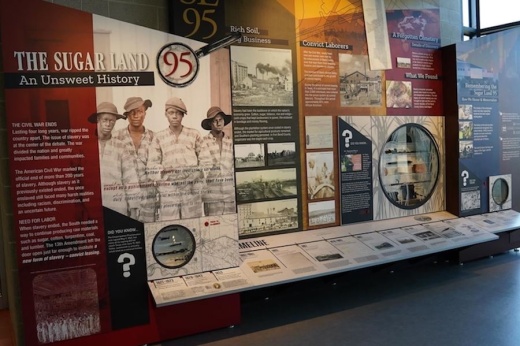Chassidy Olainu-Alade, FBISD coordinator of community and civic engagement, presented the plans and said the site is projected to open in 2025.
How we got here
In 2021 Fort Bend ISD board approved a contract agreement with MASS Design Group to assist in the planning and development of the area, which will include the historic cemetery to be constructed at the cemetery site, which is located at the James Reese Career and Technical Center campus.
The presentation, complete with renderings, was a combined effort of district audio-visual students and other groups interested in the project. The Texas Historical Commission is also providing a historic marker to be placed at the entrance to the site. The marker is part of a program known as the Undertold Markers, which is committed to marking lesser-known historical sites in the state.
What to expect
Details of the what the project entails were described by Olainu-Alade as follows:
- The burial ground will be accessible for visitors to read the markers and pay respects to individual burials.
- A pathway will lead visitors through the site if they choose to walk the grounds, which will contain benches for sitting and contemplation.
- Signs will be placed throughout and will convey information about those interned in the cemetery based on bio-forensic data, genealogical studies and archival research.
What’s next
The possibility of a future bond to help fund the project was discussed at the board meeting, but no current plan yet exists. However, the board expressed interest in further discussion.
The backstory
While constructing Fort Bend ISD’s James Reese Career and Technical Center, the remains of 95 individuals were found that were believed to have died at the Bullhead Convict Labor Camp during Texas’ convict labor leasing program in the late 19th century. By August of 2018, the remains had been examined and reinterred, as previously reported by Community Impact.
The convict leasing system was used to help Southern states supplement their depleted assets in the wake of the Civil War in the former slave states, with many of the men alleged to have been incarcerated on trumped-up charges for the purpose of filling prison labor gangs from 1866-1928.





